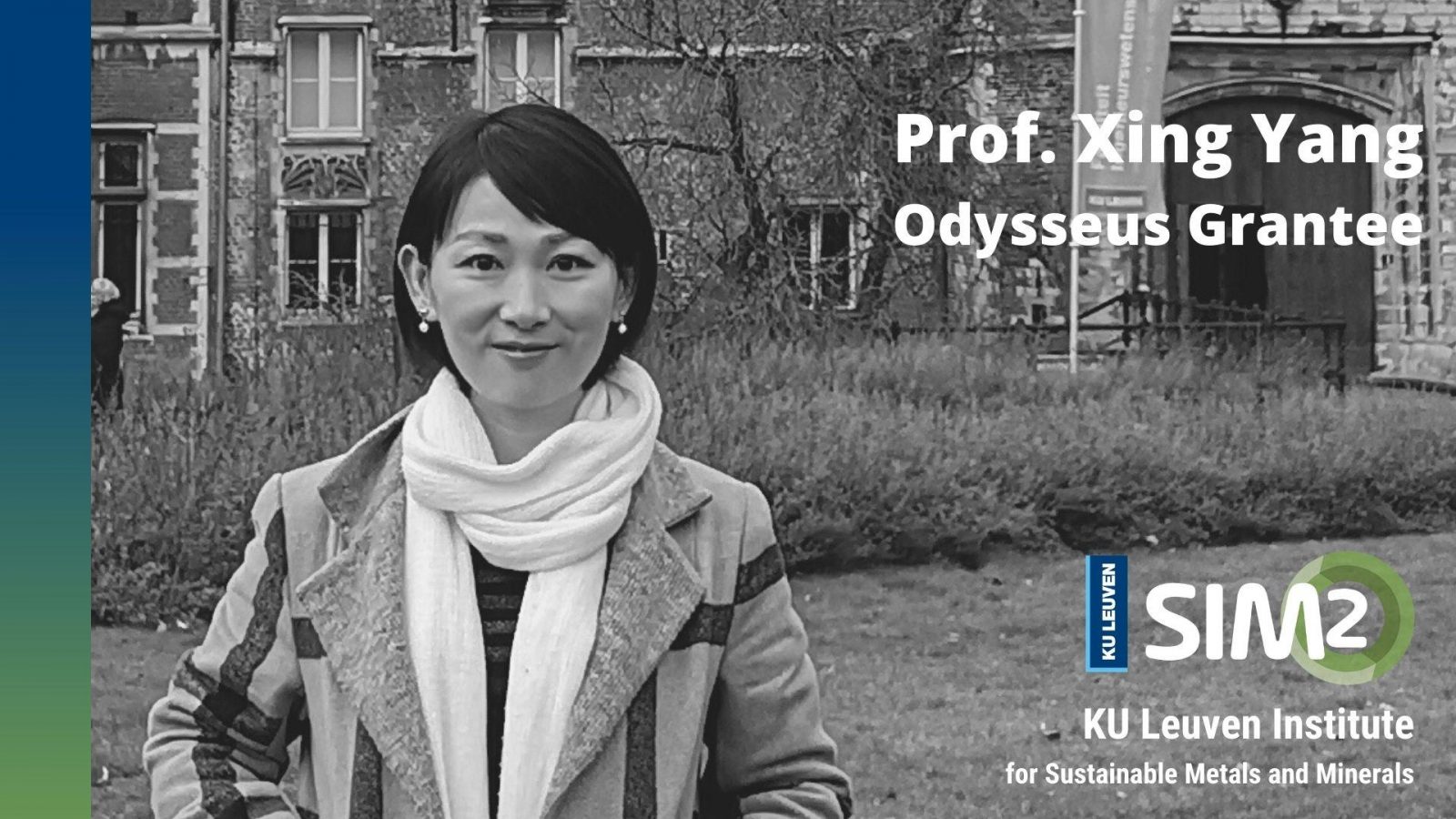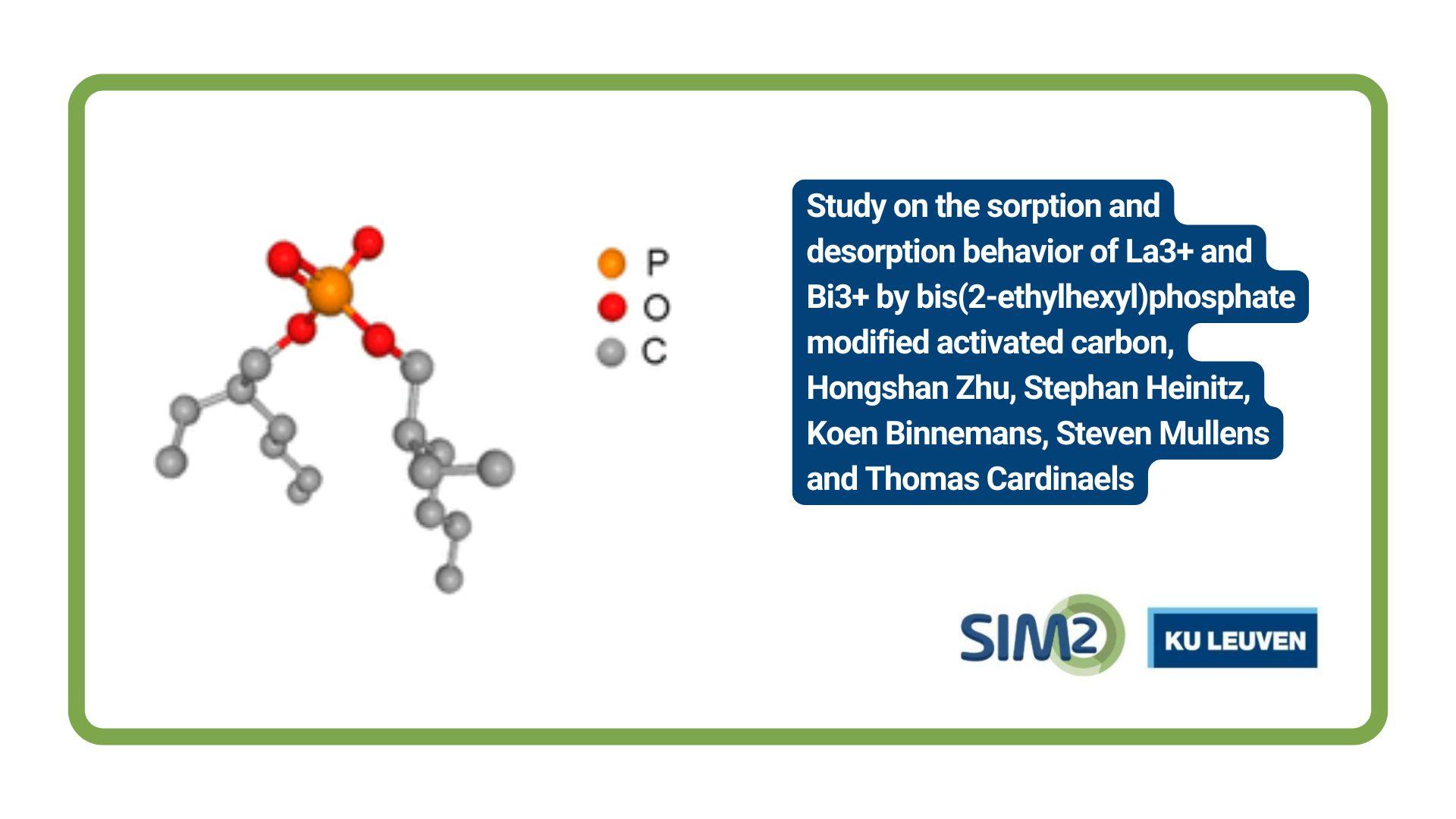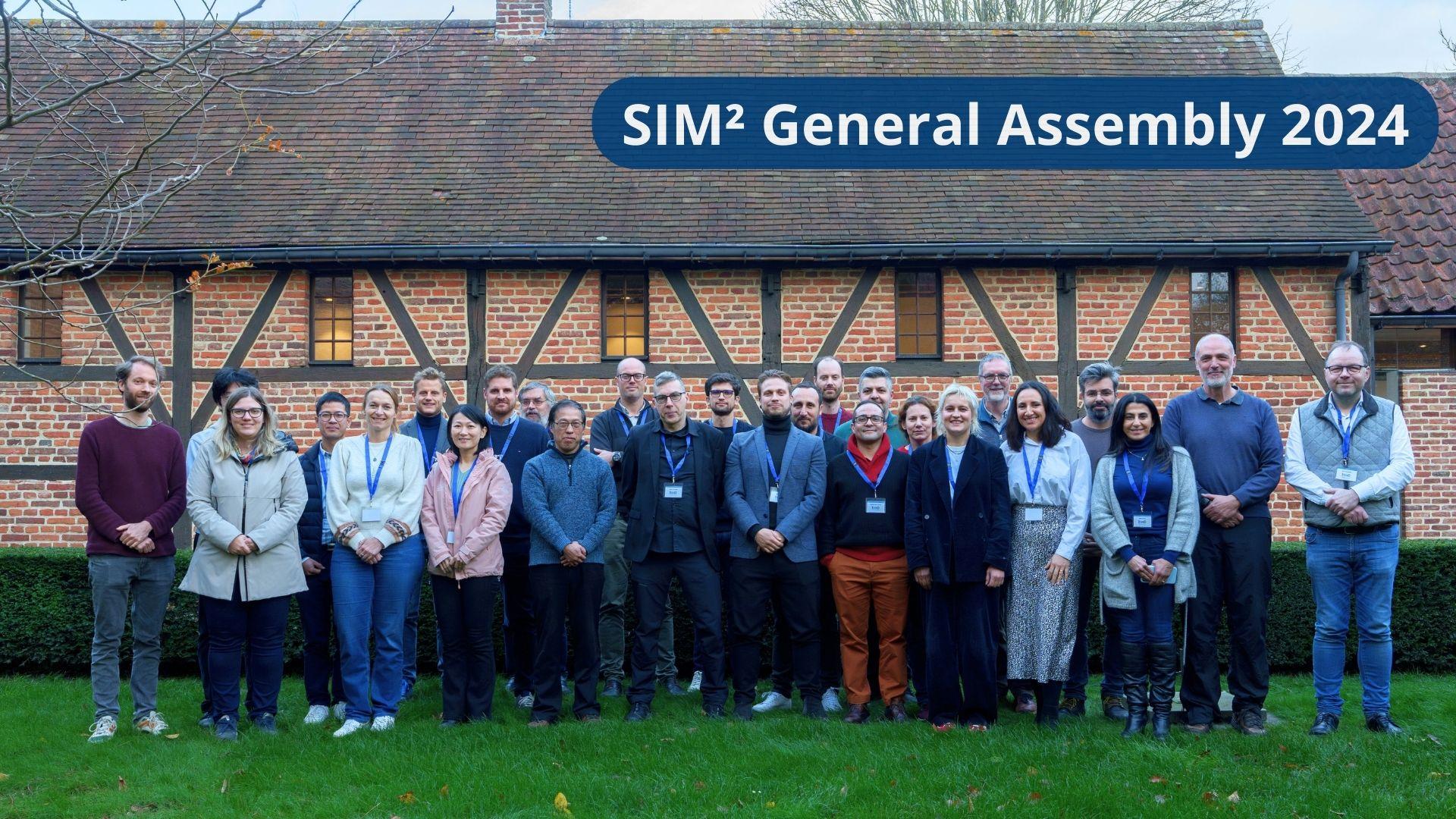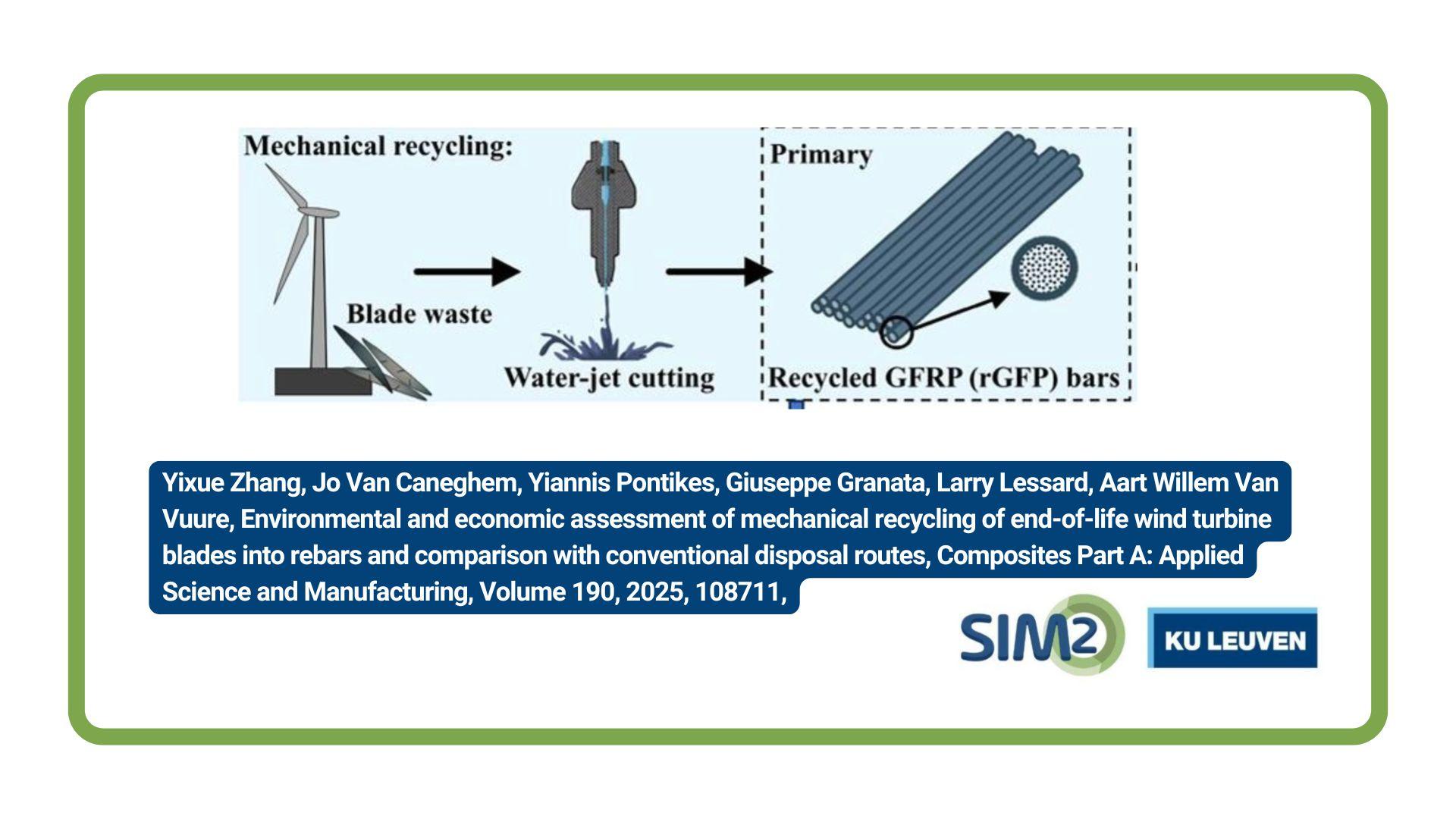Prof. Xing Yang is an Associate Professor in the ProcESS division, Department of Chemical Engineering at KU Leuven, where she leads a research group focusing on the development of smart responsive separation processes for solute purification and resource recovery, combining experimental and multi-scale simulation tools towards process intensification. She has now become the Beneficiary of a prestigious FWO Odysseus Grant (€ 935,000). Through these Grants the FWO wants to provide start-up funding to outstanding researchers who have built up a career outside Flanders. With the Odysseus Grant Prof. Yang’s Group will now develop a “Next generation membrane platform for ultra-fast purification in bio-processing”. Prof. Yang is one of 13 researchers who obtained this type of Grant this year.
Odysseus programme 2020
The Odysseus programme provides outstanding researchers who have built up a career outside Flanders, with start-up funding in order to develop or to set up a research line during a five-year period within a Flemish university. This can potentially be in collaboration with (an)other Flemish research organisation(s). As such Odysseus Grantees can become progressively more involved in the Flemish research landscape.
What makes this programme unique is the combination of a position at a Flemish university and sufficient project funding to establish their own research team. This symbiosis forms the ideal starting point to attract high level, international research to Flanders.
Next generation membrane platform
Prof. Xing Yang, one of 13 Odysseus Grantees, is delighted with her winning project, entitled "Next generation membrane platform for ultra-fast purification in bio-processing":
“Through this Odysseus Grant project, my team and I will focus on extending a new research line in Flanders to tailored separation membranes and processes to tackle transport limitations in bioprocessing. The proposed engineering approaches will have a wider applicability towards chemical purification and resource recovery.”
Public abstract Prof Yang’s Odysseus project
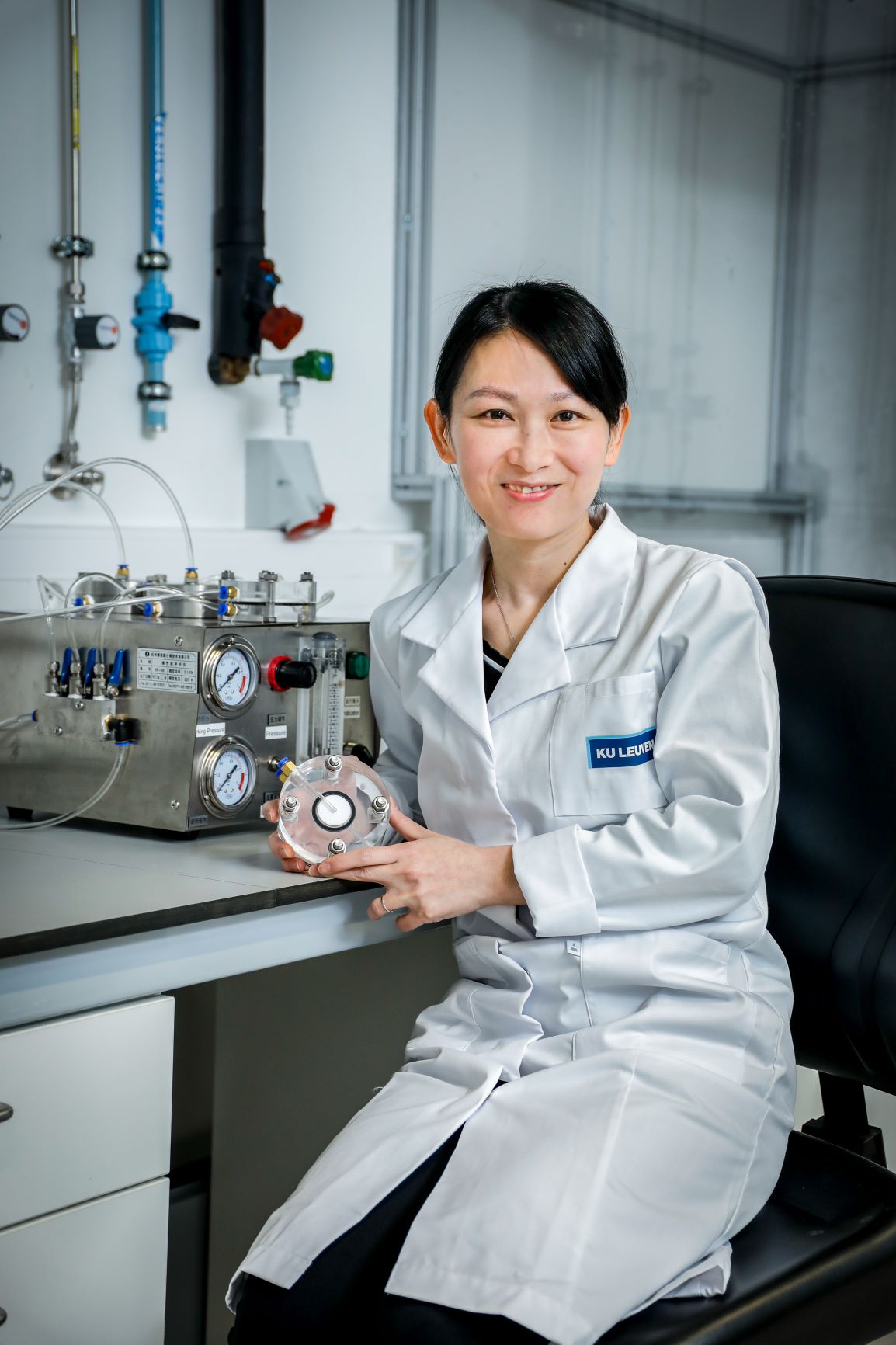 (Photo of Prof. Xing Yang (ProCESS/SIM² KU Leuven) (Photo courtesy of KU Leuven/Rob Stevens))
(Photo of Prof. Xing Yang (ProCESS/SIM² KU Leuven) (Photo courtesy of KU Leuven/Rob Stevens))
The purification of biopharmaceuticals is an essential step in the biomedical applications such as therapeutics, immunodiagnostics and vaccine development. The large market demand pushes above 10-fold increase in upstream production, shifting the manufacturing bottleneck to downstream processing. Resin columns are currently dominant but face major hurdles in scale-up due to high material cost, ultra-high pressure and mass transfer resistance.
Membrane chromatography is an emerging concept due to its many advantages such as easy scale-up, low material cost, high surface area and flow independent binding capacity, potentially offering 2-3 magnitudes higher production rate.
However, its development is still at early stage and major breakthroughs are urgently needed. This research aims to establish the next generation platform for ultrafast purification in bioprocessing.
Firstly, limitations in mass transfer and ligand distribution will be overcome by designing 3- dimensional membrane matrix. Secondly, breakthrough in binding kinetics entails the incorporation of stimuli-responsive functionality into the membrane to achieve selective separation with reduced consumption of process materials. Lastly, computational modeling is used to bring mechanistic understanding on mass transport and binding kinetics, facilitating technology scale-up.
The obtained results will directly impact efforts in bioprocessing, healthcare and broadly product purification.
Biography
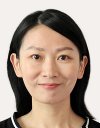 Prof. Yang is currently an associate professor at the ProcESS division in the Department of Chemical Engineering, KU Leuven. She is a trained Chemical Engineer through her Bachelor study in Zhejiang University (China), Master in Chinese Academy of Sciences and PhD in Nanyang Technological University (Singapore). Prior to joining KU Leuven, she worked at Victoria University (Australia) for six years and was a Senior Research Fellow / Lecturer, also held a joint position between Deakin University and Victoria University (2019 – 2020).
Prof. Yang is currently an associate professor at the ProcESS division in the Department of Chemical Engineering, KU Leuven. She is a trained Chemical Engineer through her Bachelor study in Zhejiang University (China), Master in Chinese Academy of Sciences and PhD in Nanyang Technological University (Singapore). Prior to joining KU Leuven, she worked at Victoria University (Australia) for six years and was a Senior Research Fellow / Lecturer, also held a joint position between Deakin University and Victoria University (2019 – 2020).
Prof. Yang has more than 10 years of interdisciplinary research experience focusing on the development of functional membranes and hybrid separation systems for resource recovery and bioseparation. Her expertise includes process intensification and integration for designing energy-efficient hybrid membrane systems combining experimental and multiscale numerical modelling.
Her research has attracted several major Australian Research Council grants and industry funding, with extensive experience in both fundamental research and technology piloting. You can read more about Prof. Yang in her recent SIM² interview.
Some key papers by Prof. Xing Yang in the field of process intensification with hybrid membrane processes
- G Guan, Hanwen Lou, Chenglong Yao, Jing Li, X Yang*, Achieving Sustainable Operation for Hypersaline Membrane Distillation applications: A Novel Strategy based on the Critical Reynolds Number, Desalination (2021), 499, p114833. https://doi.org/10.1016/j.desal.2020.114833
- W Chen, T Xiao, X Yang*, Tuning the Pore Structure of Poly(vinylidene fluoride) Membrane for Efficient Oil/Water Separation: A Novel Vapor Induced Phase Separation Method based on Lower Critical Solution Temperature system, Industrial & Engineering Chemistry Research (2020), 59 (33), p14947. https://doi.org/10.1021/acs.iecr.0c02462 (X.Y. featured as “I&EC Research 2020 Class of Influential Researchers”)
- A Vanangamudi, L F. Dumée, M Duke, X Yang*, Thermo-responsive Nanofibrous Composite Membranes for Efficient Self-Cleaning of Protein Foulants, Journal of Membrane Science (2019), 574, p309. https://doi.org/10.1016/j.memsci.2018.12.086
- A Vanangamudi, D Saeki, L F. Dumée, M Duke, T Vasiljevic, H Matsuyama, X Yang*, Surface-Engineered Biocatalytic Composite Membranes for Reduced Protein Fouling and Self-Cleaning, ACS Applied Materials & Interfaces, 2018, 10 (32), p 27477. https://doi.org/10.1021/acsami.8b07945
- X. Yang*, H.J. Pang, J.H. Zhang, A. Liubinas, M. Duke, Sustainable waste water deammonification by vacuum membrane distillation without pH adjustment: role of water chemistry, Chemical Engineering Journal, 328 (2017), p884. https://doi.org/10.1016/j.cej.2017.07.104
- GQ. Guan, X. Yang*, R. Wang, A G. Fane, Evaluation of Heat Utilization in Membrane Distillation Desalination System Integrated with Heat Recovery, Desalination, 366(2015), p.80 https://doi.org/10.1016/j.desal.2015.01.013
- T Xiao, P Wang, X Yang*, X Cai, Ji Lu, Fabrication and characterization of novel asymmetric Polyvinylidene fluoride (PVDF) membranes by nonsolvent-thermally induced phase separation (NTIPS) method for membrane distillation applications, Journal of Membrane Science (2015), 489, p160. https://doi.org/10.1016/j.memsci.2015.03.081
- GZ. Chen, X. Yang, R. Wang, A G. Fane, Performance enhancement and scaling control with gas bubbling in a direct contact membrane distillation. Desalination, 308(2013): p. 47. https://doi.org/10.1016/j.desal.2012.07.018
- X. Yang, H. Yu, R. Wang, A G. Fane, Analysis on the effect of turbulence promoters in hollow fiber membrane distillation module via computational fluid dynamic (CFD) simulations, Journal of Membrane of Science, (415–416)(2012): p. 758 https://doi.org/10.1016/j.memsci.2012.05.067
- X. Yang, R. Wang, A G. Fane, Novel designs for improving the performance of hollow fiber membrane distillation modules, Journal of Membrane of Science, 384 (1-2) (2011):p. 52 https://doi.org/10.1016/j.memsci.2011.09.007
(Featured image: Photo courtesy of Elisabeth De Decker (SOLVOMET/SIM² KU Leuven))
Want to know more about SIM²?
SIM² KU Leuven is the KU Leuven Institute for Sustainable Metals and Minerals (SIM² in short). SIM² is one of the nine official KU Leuven Institutes that were endorsed by the KU Leuven Academic Council. SIM² has more than 240 members, coming from a wide range of (interdisciplinary) research groups and departments at KU Leuven.
SIM²’s missions is “to develop, organise & implement problem-driven, science-deep research & future-oriented education, contributing to the environmentally friendly production & recycling of metals, minerals & engineered materials, supporting (…) a climate-friendly, circular-economy”. Read more about the new KU Leuven Institute here.
Follow SIM² on LinkedIn: https://www.linkedin.com/company/18118889



